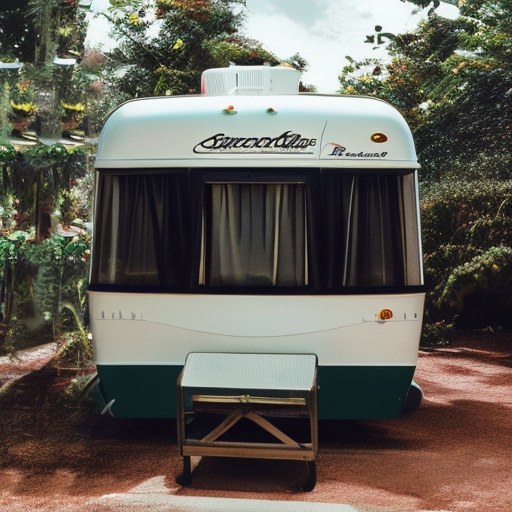How long do deep cycle solar batteries last?
How long do deep cycle solar batteries last?
If you're thinking of switching to solar energy, it's well worth learning about the role batteries play in a solar power system. The first question many people have about this component is how long do solar batteries last?
In this article, we'll discuss the lifespan of deep cycle solar batteries to help you make an informed purchase.
A solar battery is a battery which stores energy through a solar power system. Deep cycle batteries are solar batteries designed to provide sustained energy over a more extended period. Solar panels absorb energy from the sun and convert it to electricity. The energy produced by the panels passes through an inverter to use for your home appliances.
Of course, not every solar power setup will require batteries. But if you're interested in living off-grid, then deep cycle solar batteries will be an essential part of your solar system. Your solar panels will only produce power during daylight hours. So, in the evenings, you'll need an alternative power source.
If you have a grid-tied solar power system, you can draw energy from the utility grid in the evening. But if you live remotely off-grid, have a hybrid approach, or want an emergency plan, you can use a solar battery.
The use of a solar battery allows you to store the energy produced from the panels for later use. Most of our energy usage is in the evenings, so you'll often require much more power in the evening than during the daytime. But that means most homes produce more energy during the day than they use, so they have an excess they can store.
Read on to learn just how much energy solar batteries australia can store, and how long they last.
What are deep cycle solar batteries?
Solar system batteries will sometimes be called deep cycle batteries. All batteries store energy, but deep cycle batteries are specially designed for repeated and prolonged deep charging or discharging cycles.
In simple terms, that means they’re designed for regular use, and this design allows deep-cycle batteries to store and distribute power from intermittent renewable sources like solar panels.
Solar deep cycle batteries are designed to store any excess energy produced by your panels during the day. A battery can then provide you with usable solar power when the sun isn't shining in the evenings or during a grid failure.
Not all batteries are compatible with solar panels, and for this reason, you can't use car batteries as solar batteries.
What is the average life expectancy of a solar battery?
Solar panels have a very long lifespan and typically last twenty-five years or longer. Sadly a solar battery won't last as long as your panels, but they do have a reasonable lifespan.
A residential solar battery unit can last anywhere between five to fifteen years. For example, most gel batteries usually last 1100 cycles, lithium-ion phosphate batteries last around 7000 cycles and absorbed glass batteries last around 600 cycles.
If you install a solar panel system today, the chances are that you would need to replace the battery at least once in the future to match the lifespan of your solar panels.

Factors that alter the lifespan of your solar panel battery
Of course, not all solar system batteries are created equal or used in the same manner. There are many factors which can impact the lifespan of a solar battery. For example, the lifespan of solar batteries varies from technology to technology, and there are also other factors that impact lifespan.
The lifespan of a solar battery is generally dependent on these factors:
Type of solar system batteries
There are currently several types of solar batteries, and some have longer lifespans than others. Manufacturers produce solar batteries with one of three chemical compositions: lithium-ion, lead-acid, or saltwater. Lithium-ion batteries are usually the most common batteries used for home solar systems out of the three.
Despite becoming more affordable, solar batteries are still one of the most expensive components of a solar power system. Therefore, the price is often a factor that must be weighed against quality.
Lithium-ion batteries
Lithium-ion batteries are considered the gold standard for home energy storage systems. Their popularity stems from their lightweight, compactness,and longer solar battery lifespan. They also have a higher DoD than lead-acid batteries. Higher demand for these batteries has reduced the cost of l ithium-ion batteries by 85%, making solar power much more attainable.
Lead-acid batteries
Lead-acid batteries are a tried and true battery type that has been used in energy systems for many years. Because this technology is older and more widespread, these batteries are the cheapest solar battery option on the market. However, lead-acid batteries have a shorter solar battery lifespan and lower depth of discharge (DoD) in comparison with lithium-ion batteries.
Saltwater batteries
Saltwater batteries rely on saltwater electrolytes instead of heavy metals. The make-up of these batteries makes saltwater batteries more environment-friendly than lead-acid and lithium-ion batteries. This characteristic also allows saltwater batteries to be easily recycled. These batteries are less common and harder to find than many other options.
How often you use the solar panel battery
Battery usage plays a significant role in determining the lifespan of a solar battery. Even with the best technology, the lifespan of solar batteries is determined mainly by their usage cycles.
Fortunately, most solar batteries australia are deep cycle batteries, which means that they are designed to discharge up to 80% of their stored energy before recharging. In addition, some battery banks have to be discharged manually before recharging.
Nothing lasts forever, and a battery will only last for a finite amount of cycles. After they reach their cycle limit, your batteries will no longer be able to effectively store and discharge enough solar energy to make their use worthwhile.
Solar system battery warranty
Several solar battery manufacturers will offer a range of warranties for their battery products. The timeframes for these warranties will differ between manufacturers and across battery types. Usually, lead-acid batteries are at the lower end of the warranty spectrum, while lithium-ion batteries will often be covered for over ten years.
Solar system battery temperature
If you've ever had your phone or other electronic "overheat," you're aware that batteries can suffer in extreme temperatures. Solar deep cycle batteries are no different and can be damaged by extreme heat or cold.
Where you decide to install your solar battery storage system at home can make a big difference in the battery's lifespan. A solar battery unit should be placed at an optimal temperature to ensure maximum efficiency and prolonged life. If you reside in a hot region with extreme temperatures, you'll need to carefully consider your storage location.
Your battery should be installed somewhere with a moderate temperature, such as in your garage or basement (if you have one). If you live in an area with particularly mild temperatures, your battery could be placed outdoors. However, most Australians will find an indoor temperature more suitable.
Battery maintenance
Regular and proper battery and solar panel maintenance plays a significant role in extending the solar battery lifespan. For example, the average annual cost of maintaining a solar system is $150-$300, while repairs could cost around $100-$3200. Batteries are expensive to replace, so it's well worth taking care of your solar battery.
How often do you need to replace solar batteries?
Every battery will be slightly different, but you'll typically need to replace solar batteries at least once during the lifespan of the entire solar power system. Most new solar batteries on the market today will last between five to fifteen years, but their replacement is dependent on how often you cycle the battery and its warrantied life. Older technology or refurbished solar batteries will not last as long as new batteries will.
How long will a solar battery power a house?
There's no easy answer to the question of how long a battery can power a house, because of course every house and family is different. How long a solar battery will power a home depends on the size of the house, and, above all, the amount of power the house needs to run.
f you have a large house with lots of lights and run several appliances, you'll need more b
ttery power than someone with a tiny house. The more energy a device consumes, the faster it will use up the solar battery power. For example, running a 500-watt vacuum cleaner can use up to one kWh of energy in two hours. But the same amount of energy can power a 100 watt light bulb for 10 hours.

How long does a solar battery last at night?
Solar batteries work at night to make the most of the panel's daytime production. As the solar panels fill your battery with energy from the sun, the electricity is stored for future use. This stored solar energy allows your battery to provide power throughout the night.
Solar batteries can last through the night in most cases, but it will be dependent on your total energy usage and how many batteries you have. For example, many homes may require more than one battery if they have high energy usage needs. You can use our easy solar panel calculator to estimate your home's energy needs and estimate how long your solar battery will last and how many batteries you may need.
Multiple batteries are known as solar battery banks and are common in larger homes and commercial settings. Some van or vehicle solar panel installations, cabins, sheds, and tiny homes may only need one solar battery.
It's fairly easy to add more batteries to your solar power set up, but you'll want to choose your battery type wisely, as some can be larger and more difficult to store. However, if adding more batteries is too expensive, you can look for ways to reduce your energy usage in the evenings and conserve your battery power.
What is the cost of solar batteries?
Solar batteries are one of the more expensive components in a solar energy system. However, the costs of solar batteries have significantly reduced in recent years. Some subsidies and solar panel rebates may also be available in your area to help reduce battery costs.
The installation cost of solar power in your home will depend on two factors: the price that you pay for the solar system and the size of the system that you require. For example, a more extensive system may require a battery bank, which will cost more than a single battery would.
How do I know if my solar battery is bad?
Good quality solar batteries are generally very reliable if properly maintained. However, it's still possible for a battery to be damaged and start to perform poorly. You can inspect your battery in the following ways to check if it is bad:
- Look for loose/ broken terminal
- Bulging in the battery's case
- Look for visible cracks or ruptures in the exterior
- Leaks around the battery
- Significant discoloration
- Check the voltage of your battery with a digital multimeter
- Perform a load test on the deep cycle battery. You might need professional help for this step.
Solar system batteries can be repaired and refurbished, so a damaged battery does not automatically need to be replaced. For example, you may be able to have the battery repaired under warranty or by a solar professional.
How many batteries are needed for solar power?
When installing an off-grid or hybrid solar system, determining how many solar system batteries you need will be a crucial decision. Sizing the battery bank will significantly impact your system's total cost and can be a complicated process.
You'll need to do some calculations to find the answer to this question. First, you'll need to determine the size of your solar array. Your energy usage needs and available roof or ground space to mount solar panels will determine this. You can calculate your energy needs by taking six-twelve months of electricity bills and calculating your average monthly energy usage in kilowatt-hours.
Next, determine what voltage system you want; this is often pre-determined by the voltage of the solar panels. To determine the kWh usage of a deep cycle battery, you will need to pull out your phone calculator and multiply the Amp Hour (Ah) rating on the battery by your desired voltage system.
A 400 amp-hour 6-volt battery would provide around 2-4 kWh of power, so to provide 90 kWh of electricity to an average Australian household, 38 batteries would be needed.
How much can a solar battery store?
Battery sizes are described in kilowatt-hours (kWh). Solar deep cycle batteries are usually designed to hold power as a system. Depending on its size, smaller battery systems may have 2 kWh, while larger solar battery systems can hold up to 10 kWh of stored energy.
The best batteries for solar power storage
While deep cycle batteries have become much more affordable in recent years, they are still expensive and a significant investment. To help you choose a long-lasting solar battery, we've outlined some of our best solar power batteries to help you find a quality choice.
- Renogy Deep Cycle AGM Battery 12 Volt 100Ah for RV
- Renogy Deep Cycle Pure Gel Battery 12V 200Ah
Conclusion
Installing a solar battery in your system can give you the freedom to live off-grid anywhere you like. A battery can provide freedom from energy bills and grid reliance - even in the city. If you choose a hybrid system that's grid-tied with a backup battery, you'll have peace of mind that you're covered for any emergency. Solar system battery is an investment that gives you more control over your home's energy usage long-term while managing energy costs on your terms.






